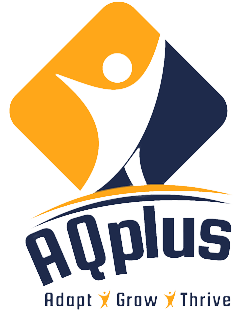We’ve all heard of IQ—the classic measure of cognitive ability—but when it comes to thriving in today’s ever-shifting landscape, it’s AQ, the Adaptability Quotient, that’s the real game-changer. While EQ (Emotional Quotient) helps us navigate relationships, it’s AQ that propels us from vision to reality, transforming ideas into tangible success.
So, what exactly is AQ? In the world of entrepreneurship, it’s the superpower of adapting swiftly to new challenges and evolving circumstances, the absolute baseline for those who dare to succeed.
Intelligence and empathy are both powerful allies, but without the ability to adapt wherever necessary, they’re practically useless. Read on to find out all about the importance of AQ and how sharpening your own might make all the difference!
Adaptability Quotient Meaning, What Is AQ?
We love turning the world into numbers, neatly packaging reality into something we can measure and analyze. But not everything fits on a ruler’s edge—especially when it comes to the intangibles like intelligence or empathy. Assessing these personal attributes is more art than science, a dive into the esoteric. Imagine you’re hiring for a key role and need to gauge how capable a candidate truly is. If they crumble in the face of the unknown, needing hand-holding to navigate unexpected challenges, it’s a red flag—a sign of low AQ.
Uncertainty and change are inescapable, so being able to meet these moments head-on when they arise serves us well.
There are several aspects to consider when determining someone’s adaptability skills. These points are found through a series of questions designed to shed light on how people are likely to act in a given situation. Their answers are then scored to gauge how flexible and resilient they are to change.
The Importance of AQ
We’re living in a time of constant change, or as I prefer to describe it: Never Normal. Social, technological, and environmental changes are battering us from left and right, and the onslaught is non-stop. If one thing’s for sure, it’s those of us with a penchant for change who’ll come out on top, especially where AQ in careers is concerned.
The balance of power and import between the three quotients (IQ, EQ, and AQ) is shifting heavily in favor of the adaptable. Looking towards an uncertain future, it seems clear that people with an innate ability to flex and adapt in the face of change are those worth keeping around. The rat race of today has no use for people unable to keep up with the times, and stagnation is as sure a death sentence as any.
The current job market is a prime illustration of why adaptability is no longer optional. With the rapid rise of Artificial Intelligence, the landscape has shifted dramatically, disrupting what once seemed like a stable career path. Jobs that were once the bedrock of lifelong security are being changed, augmented, and/or swept away by automation at an alarming rate. Those who resist change risk being left behind, while those who embrace it will find themselves leading the charge into the future.
High AQ allows for such changes to be shouldered easily with as little friction as possible, and even for them to be benefitted from. Whenever a new resource is found, it should be exploited rather than cursed at while others profit. Adaptation to new things quickly transforms into innovation if you have the right mindset, and as the old saying goes, “The early bird gets the worm.”
Adaptability Quotient Aspects
The key components of AQ are delineated into five main aspects. The individual’s ability to leverage these aspects in times of change is what determines their AQ score. All it takes is a glance over each to see how worthwhile they’d be to practice and maintain over a lifetime.
Cognitive Flexibility
Editing our outlook where necessary is a powerful ability, one that often goes overlooked. Seamlessly accepting the truth of matters without objection is a sought-after talent, especially in management roles.
The information we base our actions on is valuable, and updating it wherever necessary is incredibly important. Failure to do so leads to suboptimal practices and less-than-ideal outcomes. People with high cognitive flexibility easily edit their views and perspectives to better align with their goals.
This is especially useful in the face of ambiguous, complex, or otherwise difficult problem-solving scenarios. The ability to make use of new information instead of stubbornly using outdated strategies is the key to success in many aspects of life. To understand the importance of cognitive flexibility, you only need to ask yourself if you’d rather have the help of someone cognitively flexible or someone mired in tradition and routine.
Achieving this is especially important if we’re ever to flip the switch on how we approach the uncertain and unstable economical future. Without widespread cognitive flexibility and leadership development, VUCA will triumph.
Emotional Resilience
Facing the storms of unexpected change isn’t just about flexing your intellectual muscles. It’s about mastering your emotions, too—an underrated superpower that true leaders recognize and respect. Shift happens! Everyone stumbles and gets rattled, even the most gritty and unflappable. But people with high AQ and resilience, brush it off and move on. It’s not just about surviving the chaos; but doing it with grace and doing it quickly. The ability to bounce back in any situation, no matter how intense the challenge, is what sets the truly adaptable apart.
Nurturing emotional strength so we’re not brought to our knees by the first unexpected bump in the road is a necessary strategy to reach any goal. Staying focused and continuing to move forward, or altering course when required, despite the occasional pain of setback is a talent all successful have, practiced or otherwise.
Now more than ever, it seems the workforce is struggling to find people with reliable emotional resilience. If you’re looking for an edge among other potential job seekers, demonstrating a calm and collected demeanor could be just the ticket.
Growth Mindset
Our thoughts and beliefs are the architects of who we become. Believing that you are born with certain skills or you’re not, also believe it’s a waste of time and not useful to learn and grow. But embracing the idea that growth and improvement are within our reach—powered by grit and resilience—lays the groundwork for building a strong AQ.
The real secret? Treat every challenge like a free upgrade in your skill set, a test run that preps you for the next big thing. When you start seeing obstacles as a series of opportunities, you’re not just navigating life—you’re leveling up, ready to face whatever comes next with a sharper edge.
A growth mindset encourages improvement where others might balk and turn away from an opportunity out of fear or the threat of discomfort.
Learning Agility
In a world where the only constant is change and often never normal, unlearning agility emerges as the ultimate survival skill. Sure, continuous learning is crucial—who doesn’t love the thrill of mastering something new? But here’s the kicker: in the relentless flux of today’s landscape, learning alone just won’t cut it. Unlearning is mission critical as a driver of innovation. The real magic happens when you can unlearn—when you can let go of the old rules, outdated strategies, and worn-out playbooks that once served you but now hold you back.
Think about it: creativity and innovation don’t just spring from what you know; they’re born from what you’re willing to forget. When you embrace unlearning, every challenge becomes an opportunity to rewrite the script, to experiment, and to discover something entirely new. Fear of failure? That’s just another chance to shed what’s no longer useful and dive into the unknown.
Those who master unlearning agility understand that continuous learning is only half the equation. It’s the ability to unlearn, to make room for fresh ideas, that transforms a good strategy into a great one and turns adaptability into a superpower. In this ever-evolving world, the future belongs to those who can learn, unlearn, and relearn—over and over again
Openness to Change
Openness to change is a great start—it signals that you’re willing to roll with the punches and adapt as the world around you evolves. But here’s the thing: openness can be too passive, like sitting in the passenger seat of your own journey. You’re along for the ride, but you’re not the one steering. That’s where curiosity kicks in, taking you from a passive participant to an active explorer.
Curiosity isn’t just about accepting change; it’s about seeking it out, questioning the status quo, and diving headfirst into the unknown with a thirst for discovery. It demands intention, effort, and a willingness to challenge your own assumptions.
The sooner we accept that constant change is a fact of life, the sooner we can make the most of it when it comes to calling.
Purposefully Developing AQ
Introspection is the first step to understanding our AQ and developing it further. To shore up weaknesses in ourselves we first have to find and address them. This involves looking within and taking stock of what might be improved upon.
This process requires the use and cultivation of self-awareness, as deluding ourselves or otherwise obfuscating our issues rather than addressing them is a dead end. Practicing mindfulness and forgiveness goes a long way to strengthening our internal landscape and preparing it for positive change.
It’s perfectly possible to cultivate our AQ with personal growth in mind. The decision to take life by the reins and improve ourselves so that we might better tackle future problems is admirable, and the only good option. If the only alternative is to stagnate, improving adaptability metrics so we might survive and prosper seems a much safer bet, and allows for a much brighter future.
Adapting Your Adaptability
Self-improvement always starts with the question of where we need to direct our attention. The skills and attributes we each possess vary wildly, but we’re all in the same boat when it comes to the desire to improve.
Grasping this desire and making it work for us is one of the necessary keys to unlocking our full potential, wherever that might be. Now you know the answer to the question “What is AQ?” you’ll probably want to get started.
Why not check out our free growth mindset quiz today? All it takes is answering a few questions to discover where you’re at on the journey to unlocking your full potential!







